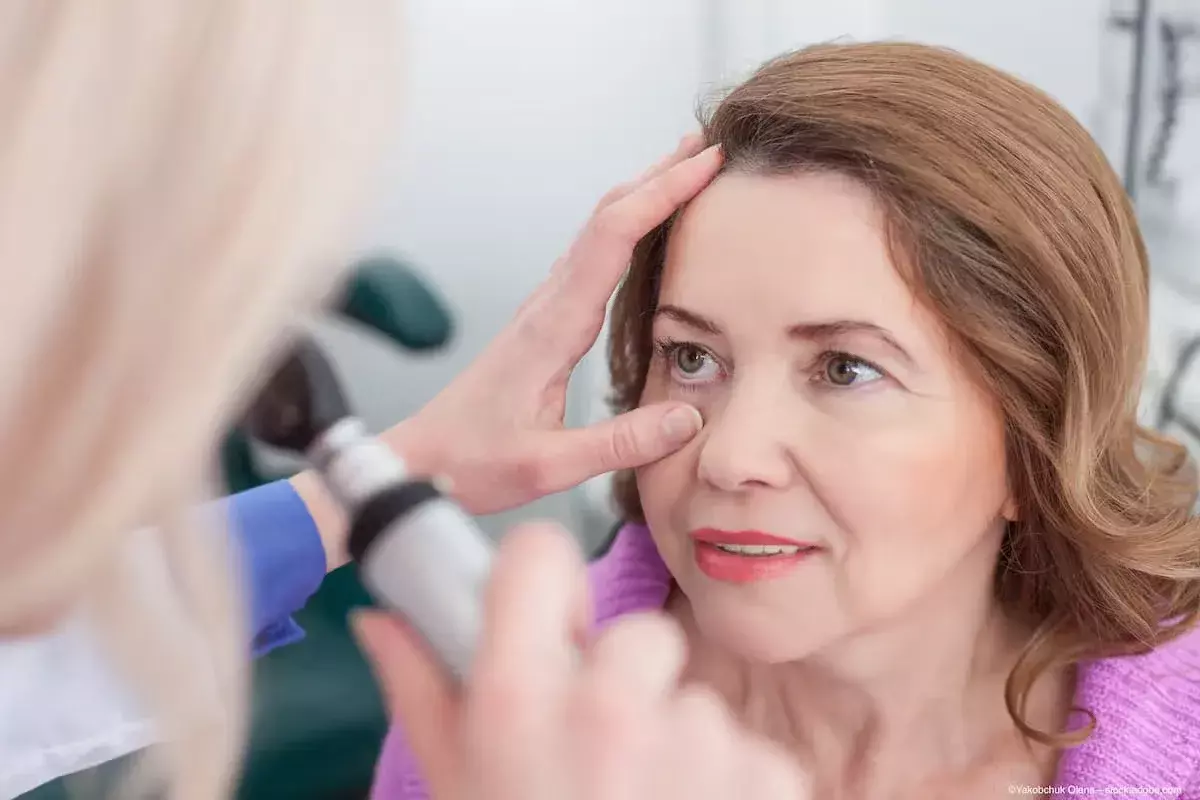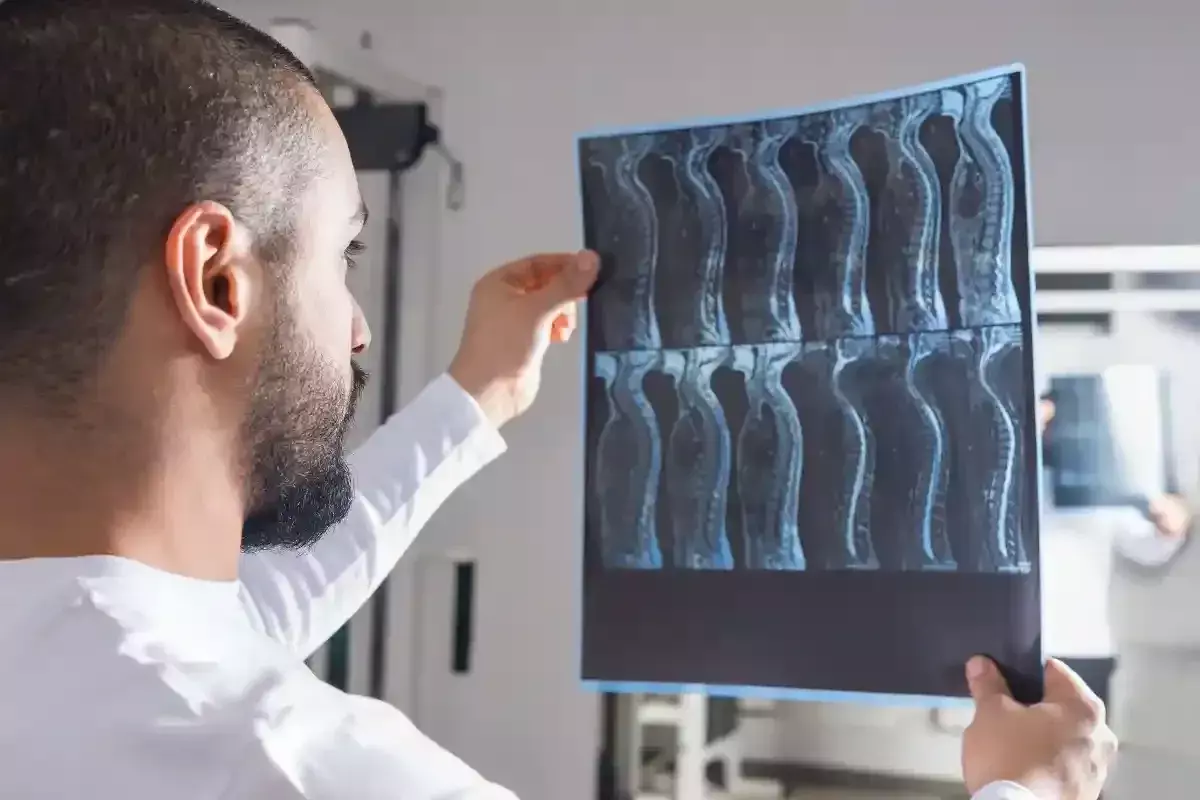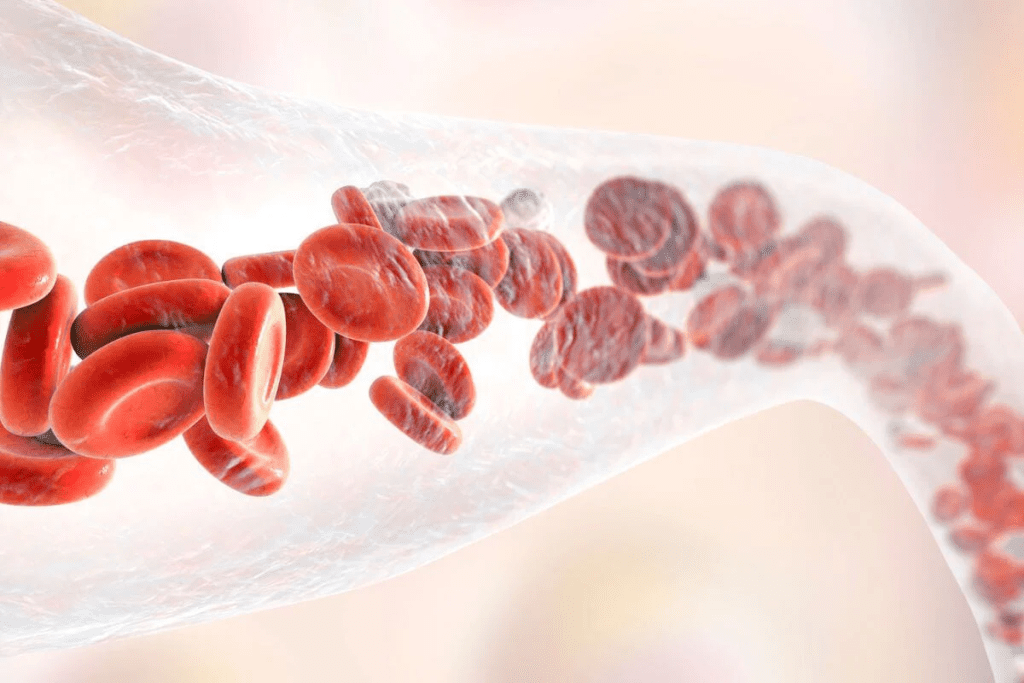
Blood clots can be a serious health concern. It’s important to know how to manage them.
We look into natural methods to dissolve blood clots and the role of blood thinning foods. Understanding these methods is crucial for maintaining our overall health.
Learning about natural blood thinners and adding blood thinning foods to our diet can help. It’s a step towards keeping our heart healthy.
Key Takeaways
- Understanding the risks associated with blood clots.
- The role of diet in managing blood clot risks.
- Identifying foods that act as natural blood thinners.
- Importance of consulting healthcare professionals.
- Lifestyle changes to support cardiovascular health.
Recognizing the risks and signs of dangerous blood clots is essential for obtaining urgent medical assistance.
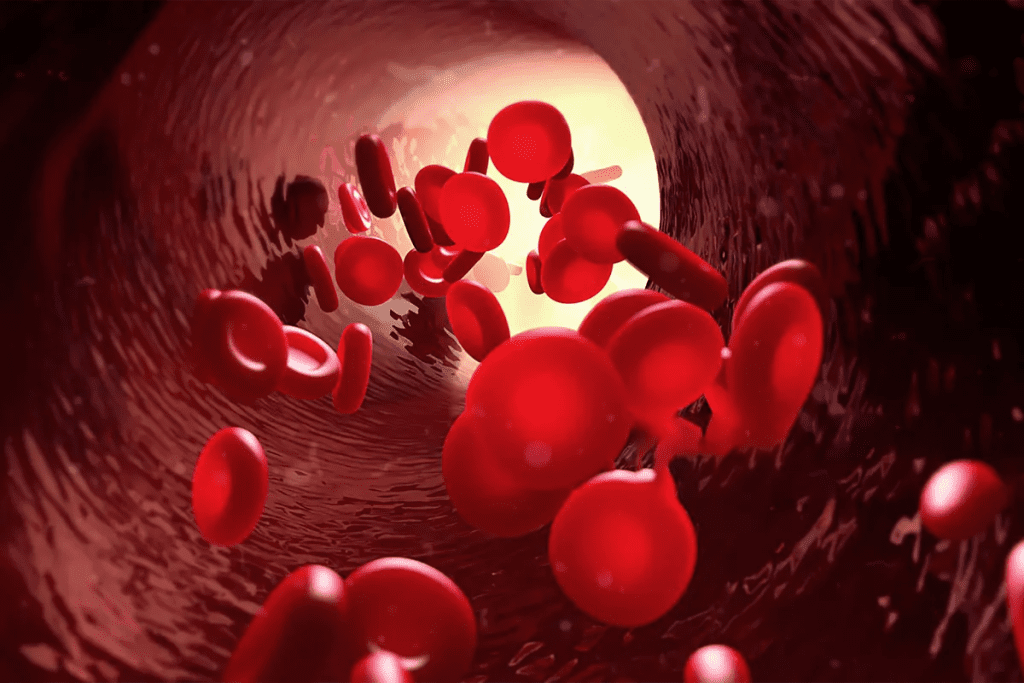
To tackle the dangers of blood clots, we first need to know what they are and how they form. Blood clots are like gel-like clumps of blood that the body makes to stop bleeding. They’re a natural response to injury, but they can be harmful if they form without reason or don’t dissolve.
What Are Blood Clots and How Do They Form?
Blood clots form through a complex process involving blood cells and proteins. When a blood vessel gets injured, the body tries to stop the bleeding by making a clot. This process, called coagulation, involves platelets and clotting factors coming together to create a fibrin clot. While this helps prevent too much blood loss, clots can also form without injury due to genetics, lifestyle, and health conditions.
Clots near the skin’s surface can be seen and might not be dangerous. But, clots in deeper veins, known as deep vein thrombosis (DVT), or those that travel to the lungs, causing a pulmonary embolism (PE), are serious. For example, Zack Wheeler’s case shows how blood clots can affect athletes, forming near the shoulder.
Recognizing the risks and signs of dangerous blood clots is essential for obtaining urgent medical assistance.
Blood clots become dangerous when they block blood flow or break loose and go to vital organs. The dangers of blood clots are serious and can be deadly.
Recognizing the risks and signs of dangerous blood clots is essential for obtaining urgent medical assistance.
- Deep Vein Thrombosis (DVT): Clots in the deep veins, usually in the legs, can cause pain, swelling, and warmth.
- Pulmonary Embolism (PE): A clot that breaks loose and goes to the lungs can block breathing and be fatal.
- Stroke: Clots in or traveling to the brain can block blood flow and cause a stroke.
Recognizing the risks and signs of dangerous blood clots is essential for obtaining urgent medical assistance. We must understand what causes clots and take steps to prevent them.
The Science Behind Natural Blood Thinners
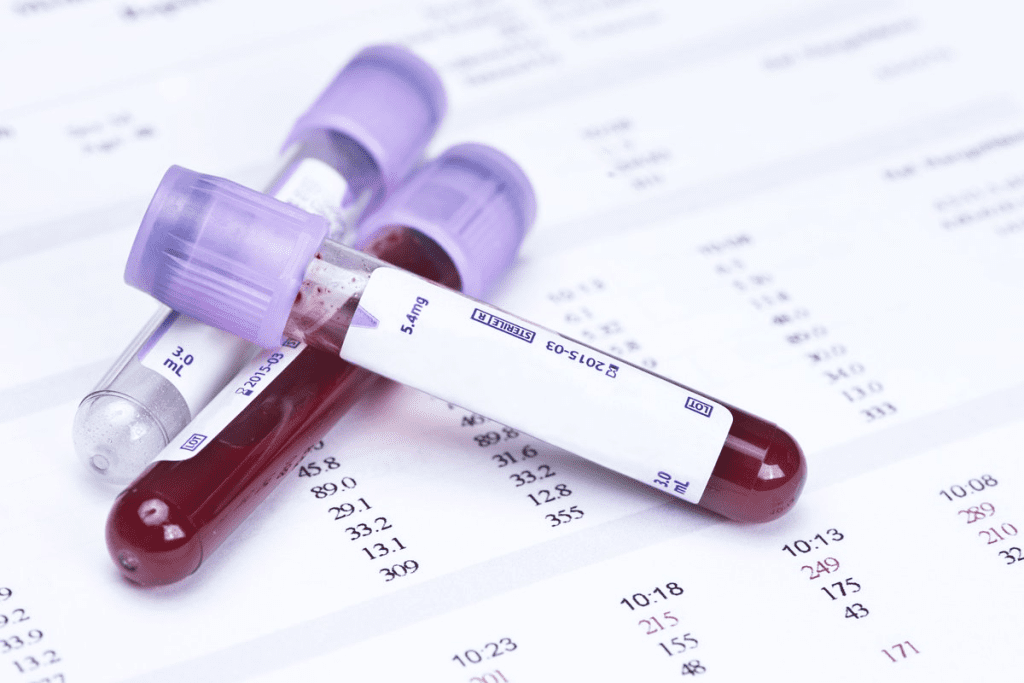
Natural blood thinners are getting attention for their heart health benefits. They help prevent blood clots without the side effects of drugs. This makes them a good choice for many people.
We look at how these natural options work and compare them to drugs. This helps us understand their good points and any downsides.
How Natural Anticoagulants Work
Natural anticoagulants are found in foods and supplements. They stop the liver from making clotting factors or boost anticoagulant proteins. For example, turmeric contains curcumin, which fights inflammation and helps prevent clots.
Garlic is also a strong natural anticoagulant. It stops platelets from sticking together, which prevents clots. Knowing how these substances work helps us use them to keep our hearts healthy.
Comparing Natural vs. Pharmaceutical Blood Thinners
There are key differences between natural and drug blood thinners. Drugs like warfarin work well but need close monitoring and can cause serious side effects. Natural blood thinners are safer and can be part of our diet, but their strength can vary.
| Characteristics | Natural Blood Thinners | Pharmaceutical Blood Thinners |
| Effectiveness | Variable, generally milder | Highly effective |
| Side Effects | Fewer side effects | Potential for significant side effects |
| Monitoring Required | No regular monitoring needed | Regular monitoring required |
| Incorporation into Diet | Can be part of daily meals | Prescription medication |
Knowing the differences between natural and drug blood thinners helps us make better choices for our heart health. This can lower the risk of blood clots.
Top 10 Foods That Naturally Dissolve Blood Clots
We can help our body dissolve blood clots by choosing the right foods. Adding certain foods to our diet can help manage blood clots. These foods have properties that thin the blood, reducing the risk of heart problems.
Garlic and Its Blood-Thinning Properties
Garlic has been used for centuries for its health benefits, including thinning the blood. It has compounds that stop platelets from sticking together, which lowers the risk of clots. Adding garlic to your meals or taking supplements is easy.
Ginger: A Powerful Natural Anticoagulant
Ginger is known for its anti-inflammatory and anticoagulant effects. It makes blood less likely to clot by reducing its thickness. You can enjoy ginger fresh, dried, or as a tea.
Turmeric and Curcumin Benefits
Turmeric has curcumin, which fights inflammation and prevents blood clots. Curcumin stops platelets from sticking together. You can add turmeric to many dishes, or take curcumin supplements.
Cinnamon’s Effect on Blood Viscosity
Cinnamon improves blood flow and lowers blood viscosity. It helps keep the heart healthy by stopping blood clots. Adding cinnamon to oatmeal or yogurt is simple.
Other foods that thin the blood include:
- Fatty fish rich in omega-3 fatty acids
- Leafy greens like spinach and kale
- Berries rich in antioxidants
- Nuts and seeds, like those high in vitamin E
- Whole grains
- Other herbs and spices like cayenne pepper and ginkgo biloba
Eating these foods can help manage blood clots and improve heart health. Always talk to a doctor before changing your diet, if you’re on medication or have health issues.
Fruits and Vegetables That Thin Blood Effectively
Some fruits and vegetables can help thin your blood naturally. They are good for your health and help keep your blood flowing well.
Citrus Fruits Rich in Natural Anticoagulants
Citrus fruits like oranges, lemons, and grapefruits are full of vitamin C and flavonoids. These have anticoagulant properties. Eating these fruits can help prevent blood clots. Vitamin C in them also helps your blood vessels stay healthy.
“The antioxidant properties of citrus fruits contribute significantly to their blood-thinning effects,” as noted by health experts. You can add citrus fruits to your diet easily. Try having orange juice or lemon in your meals.
Leafy Greens and Their Impact on Blood Health
Leafy greens like spinach, kale, and collard greens are full of vitamin K. Vitamin K helps control blood clotting. These greens also have antioxidants and nutrients good for your heart.
- Spinach is rich in vitamin K and antioxidants.
- Kale provides a good amount of fiber and vitamins.
- Collard greens are known for their high nutritional value.
Berries and Other Antioxidant-Rich Fruits
Berries like strawberries, blueberries, and raspberries are full of antioxidants. They reduce inflammation and improve blood vessel function. The anthocyanins in berries are good for your heart.
You can add berries to your diet in many ways. Try them in cereal, smoothies, or as a snack.
Herbs and Spices as Natural Blood Thinners
Adding certain herbs and spices to your meals can boost blood flow and stop clots. These natural items have been used for ages for their health benefits. They help thin blood and keep the heart healthy.
Cayenne Pepper and Its Circulatory Benefits
Cayenne pepper is spicy and packed with capsaicin. This compound makes blood vessels wider, which helps blood flow better. It also makes blood thinner and can lower blood pressure, improving heart health.
Ginkgo Biloba for Improved Blood Flow
Ginkgo biloba is an old herb with many health benefits. It makes blood flow better and stops clots from forming. It also protects cells from damage with its antioxidants.
Other Herbs That Prevent Blood Clotting
There are more herbs and spices that can thin blood and stop clots. Some of these include:
- Turmeric, which has curcumin that fights inflammation and prevents blood from clotting.
- Ginger, which stops blood clots from forming.
- Cinnamon, which improves blood flow and makes blood thinner.
| Herb/Spice | Benefit | Usage |
| Cayenne Pepper | Improves circulation, thins blood | Add to meals or take as supplement |
| Ginkgo Biloba | Improves blood flow, prevents clotting | Consume as tea or supplement |
| Turmeric | Anti-inflammatory, anticoagulant | Add to food or take as curcumin supplement |
Using these herbs and spices in your diet can help keep blood flowing well and prevent clots. But, always talk to a doctor before changing your diet or adding supplements, even if you’re already taking blood thinners.
Essential Oils That May Help Dissolve Blood Clots
Essential oils are gaining attention for their role in improving blood flow and dissolving blood clots. They shouldn’t replace medical care but can support heart health. This is by improving circulation.
How to Use Essential Oils Safely for Blood Health
It’s important to know how to use essential oils safely. Always mix essential oils with a carrier oil before applying to the skin. This prevents irritation. The right mix is usually 1-3% essential oil to carrier oil.
- Do a patch test on your skin before using a new essential oil. This checks for allergies.
- Talk to a doctor before using essential oils, if you have health issues or are pregnant.
- Choose high-quality, pure essential oils from trusted sources.
Top Essential Oils for Circulation
Some essential oils are known to help with blood flow and health. Here are a few:
- Cayenne: Has capsaicin, which may boost circulation.
- Ginger: May cut down inflammation and enhance blood flow.
- Frankincense: Has anti-inflammatory effects that support heart health.
- Rosemary: May improve circulation and reduce swelling.
- Eucalyptus: Helps blood flow and lowers inflammation.
While these oils may help, they’re not a cure-all. Always talk to a healthcare professional before adding them to your routine. This is true if you’re using them for blood clot issues.
Vitamins and Supplements for Blood Clot Prevention
Vitamins and supplements can help prevent blood clots naturally. They also improve heart health. It’s important to know how these nutrients can fit into your daily routine.
Vitamin E’s Role in Blood Thinning
Vitamin E is an antioxidant that also thins blood. It stops blood clots from forming. This reduces the chance of heart problems. You can find vitamin E in nuts, seeds, and vegetable oils.
Nuts and seeds rich in vitamin E:
- Almonds
- Sunflower seeds
- Pumpkin seeds
Omega-3 Fatty Acids and Blood Viscosity
Omega-3 fatty acids, found in fatty fish, improve heart health. They make blood flow better. This reduces the chance of blood clots.
“Omega-3 fatty acids have been demonstrated to have anti-thrombotic effects, making them a valuable supplement for cardiovascular health.”
The table below shows the benefits of omega-3 fatty acids:
| Benefit | Description |
| Reduces blood viscosity | Makes blood less sticky, reducing clot risk |
| Anti-inflammatory effects | Helps reduce inflammation in the body |
| Improves heart health | Supports overall cardiovascular well-being |
Other Supplements That Support Healthy Blood Flow
Other supplements also help with blood flow. These include:
- Magnesium: Helps relax blood vessels
- Garlic supplements: Known for their cardiovascular benefits
- Ginkgo biloba: Improves circulation
Always talk to a doctor before starting new supplements. This is true if you’re already taking medicine or have health issues.
Over-the-Counter Blood Thinners vs. Natural Alternatives
OTC blood thinners are popular, but natural options are growing in popularity. They offer benefits and fewer side effects. It’s key to know the differences between these two types.
Common OTC Blood Thinners and Their Effects
Aspirin is a common OTC blood thinner. It stops platelets from sticking together, which lowers clot risk. But, taking aspirin long-term can cause stomach bleeding.
Other OTC blood thinners have antiplatelet or anticoagulant properties. Always follow the dosage and talk to a doctor before starting any new medicine.
| OTC Blood Thinner | Mechanism of Action | Potential Side Effects |
| Aspirin | Inhibits platelet aggregation | Gastrointestinal bleeding, allergic reactions |
| Other antiplatelet medications | Prevents platelet clumping | Bleeding, bruising |
When to Choose Natural or OTC Options
The choice between OTC and natural blood thinners depends on your health needs. Natural options, like diet changes and supplements, might be safer for some. Always talk to a doctor before making changes.
If you can’t take OTC meds or want a holistic approach, natural blood thinners like omega-3s and vitamin E might be good. A doctor can help find the best treatment for you.
In conclusion, both OTC and natural blood thinners have roles in heart health. Knowing their benefits and risks helps you make smart health choices.
Natural Blood Thinners Instead of Aspirin
Many people are choosing natural blood thinners over aspirin. Aspirin works well to prevent blood clots but can cause stomach problems and bleeding. Natural options might be safer.
When Natural Alternatives May Be Appropriate
Natural blood thinners are good for those at risk of bleeding or with stomach issues. They’re also great for those wanting a natural way to keep their heart healthy. Some natural options include:
- Garlic: It has properties that help thin the blood and stop clots.
- Ginger: This spice improves blood flow and has anti-inflammatory effects.
- Turmeric: It contains curcumin, which fights inflammation and helps thin the blood.
Comparing Effectiveness with Low-Dose Aspirin
It’s important to compare natural blood thinners with low-dose aspirin. Some studies show natural compounds can be as good as aspirin at preventing clots. For instance:
- Omega-3 fatty acids can help prevent heart problems by stopping blood clots.
- Vitamin E has antioxidants that may stop blood clots and boost heart health.
Always talk to a doctor before switching to natural blood thinners. The right choice depends on your health.
Lifestyle Changes to Prevent Blood Clots
Making lifestyle changes is key to keeping blood flowing well and avoiding clots. Simple daily habits can greatly lower the chance of blood clots.
Exercise and Its Impact on Blood Circulation
Regular exercise is vital for good blood flow. It makes the heart stronger and improves circulation, cutting down clot risk. We suggest doing at least 30 minutes of moderate exercise daily.
Good exercises for blood flow include:
- Brisk walking
- Swimming
- Cycling
- Yoga
Always talk to a doctor before starting new exercises, if you have health issues.
Hydration for Healthy Blood Flow
Drinking enough water is key for blood flow. Water helps keep blood from getting too thick, which can cause clots.
| Hydration Tips | Benefits |
| Drink at least 8-10 glasses of water per day | Maintains blood fluidity |
| Avoid sugary drinks and caffeine | Reduces risk of dehydration |
| Monitor urine color | Ensures proper hydration levels |
Stress Management Techniques
Too much stress can harm blood flow and increase clot risk. Finding ways to relax can help.
Effective stress reducers include:
- Meditation
- Deep breathing exercises
- Yoga
- Progressive muscle relaxation
By making these lifestyle changes, we can lower blood clot risk and keep our hearts healthy.
Creating a Diet Plan for Thinning Blood Naturally
Creating a diet plan with blood-thinning foods can help your heart health. Eating certain foods and nutrients can keep your blood flowing well. This can also lower the chance of blood clots.
Daily Meal Ideas Incorporating Blood-Thinning Foods
To support blood health, add a variety of blood-thinning foods to your meals. Here are some meal ideas to help thin your blood naturally:
- Breakfast: Oatmeal with sliced ginger and a sprinkle of turmeric, with orange juice.
- Lunch: Grilled salmon with steamed leafy greens and olive oil.
- Snack: Almonds and dried apricots.
- Dinner: Stir-fry with garlic, ginger, and colorful veggies, with quinoa.
These meals include foods like ginger, turmeric, and garlic. They help thin your blood naturally.
“A diet rich in fruits, vegetables, and whole grains can help support cardiovascular health and reduce the risk of blood clots.”
Sample Weekly Menu for Optimal Blood Health
Here’s a weekly menu with blood-thinning foods for better blood health:
| Day | Breakfast | Lunch | Dinner |
| Monday | Oatmeal with ginger and turmeric | Grilled chicken with roasted vegetables | Stir-fry with garlic and ginger |
| Tuesday | Scrambled eggs with spinach | Salmon salad with olive oil and lemon | Beef and broccoli stir-fry |
| Wednesday | Greek yogurt with berries and almonds | Turkey and avocado wrap | Grilled shrimp with quinoa and steamed asparagus |
This menu offers a mix of blood-thinning foods. You can adjust it to fit your taste and dietary needs.
By adding these foods to your diet, you can improve your heart health. This can also lower the risk of blood clots.
Cautions and Contraindications
It’s important to know the cautions and contraindications of natural blood thinners. These substances can help prevent blood clots. But, there are times when they should be used carefully or not at all.
When Natural Blood Thinners Should Be Avoided
Some people need to be careful with natural blood thinners. Those with bleeding disorders or taking anticoagulant drugs should talk to their doctor first. It’s important not to mix natural blood thinners with prescription anticoagulants without a doctor’s okay, as it can lead to more bleeding.
Also, if you’re planning surgery, tell your doctor about the natural blood thinners you’re taking. Some might need to stop before surgery to lower bleeding risks.
“The risk of bleeding associated with the use of natural blood thinners can be significant in certain populations, such as those with hemophilia or other bleeding disorders.”
Potential Interactions with Medications
Natural blood thinners can also interact with other medications. For example, garlic supplements can make anticoagulant drugs work too well, raising bleeding risks. Ginger and turmeric can also interact with blood thinners, so watch out.
Tell your doctor about all the medications and supplements you’re taking. Regular check-ups and talking openly with your doctor can help avoid problems with natural blood thinners.
When to Seek Medical Help
It’s important to know the warning signs of blood clots. This is because blood clots can be deadly if not treated quickly. Knowing when to get help is key to managing them well.
Warning Signs That Require Immediate Attention
Some symptoms mean you might have a serious blood clot problem. These include:
- Swelling, pain, or tenderness in one leg or arm
- Sudden breathlessness or difficulty breathing
- Chest pain or discomfort that worsens with deep breathing or coughing
- Rapid heart rate
- Coughing up blood
If you notice any of these signs, you must get medical help right away.
| Warning Sign | Description |
| Swelling or pain in limb | Could indicate Deep Vein Thrombosis (DVT) |
| Sudden breathlessness | May signal a Pulmonary Embolism (PE) |
| Chest pain | Can be a sign of PE or heart-related issues |
Working with Healthcare Providers on Natural Approaches
Using natural methods to manage blood clots needs close work with doctors. They can watch your health and make sure natural remedies don’t harm other treatments.
“Integrating natural approaches into your treatment plan can be beneficial, but it requires careful consideration and monitoring by healthcare professionals.”
Talking to your doctor about your plans can help spot risks and benefits.
Conclusion
We’ve looked into how to dissolve blood clots naturally. We focused on the role of natural blood thinners in keeping our hearts healthy. Understanding how blood clots form and their dangers helps us see why natural anticoagulants are key.
We talked about the best foods, herbs, and supplements for thinning blood. These include garlic, ginger, turmeric, and omega-3 fatty acids. We also discussed the importance of exercise, staying hydrated, and managing stress to prevent blood clots.
While natural blood thinners are great for a healthy lifestyle, it’s important to know about possible drug interactions. Always talk to a doctor before making big changes. A balanced diet and smart lifestyle choices can help keep our hearts healthy and lower blood clot risks.
In short, adding natural blood thinners to our daily routine is a smart move for our health. We suggest trying these natural methods and working with doctors to create a plan for better blood health.
FAQ
What are natural blood thinners, and how do they work?
Natural blood thinners help prevent blood clots without drugs. They stop the liver from making clotting factors or improve blood vessel function. They also directly interfere with clotting.
Are there any foods that can help thin blood naturally?
Yes, foods like garlic, ginger, and citrus fruits can thin blood naturally. Leafy greens and berries also help. Eating these foods supports heart health and reduces clot risk.
Can herbs and spices be used as natural blood thinners?
Yes, herbs like cayenne pepper and ginkgo biloba can thin blood. Cinnamon also has this effect. Use them in your diet or as supplements with a doctor’s advice.
Are essential oils effective for blood clot prevention?
Some essential oils, like omega-3 rich ones, may support blood health. But, their clot prevention effect is mostly based on stories. Always talk to a doctor before using them for health reasons.
Can vitamins and supplements help prevent blood clots?
Vitamins like E and omega-3 fatty acids might help blood health. But, always check with a doctor before adding supplements to your routine.
How do natural blood thinners compare to over-the-counter (OTC) blood thinners?
Natural thinners are milder than OTC ones like aspirin. They’re good for prevention but might not work for high-risk people or those needing quick treatment.
Can lifestyle changes help prevent blood clots?
Yes, changes like exercise and staying hydrated can prevent clots. A healthy lifestyle works well with natural thinners.
Are there any risks or contraindications associated with using natural blood thinners?
Yes, natural thinners can interact with drugs and aren’t for everyone. They might not be safe for bleeding disorders or surgery. Always talk to a doctor before starting.
When should I seek medical help if I’m using natural approaches to manage blood clots?
Seek help for severe pain, swelling, or breathing issues. Chest pain is also a sign to go to the hospital. Regular doctor visits are key when using natural methods.
Can a diet plan help in thinning blood naturally?
Yes, a diet full of fruits, veggies, and lean proteins can help. Adding blood-thinning foods to your diet supports blood health. A good diet and lifestyle changes can prevent clots.
References
Medical Channel – Review of herbal medications that may affect blood clotting



